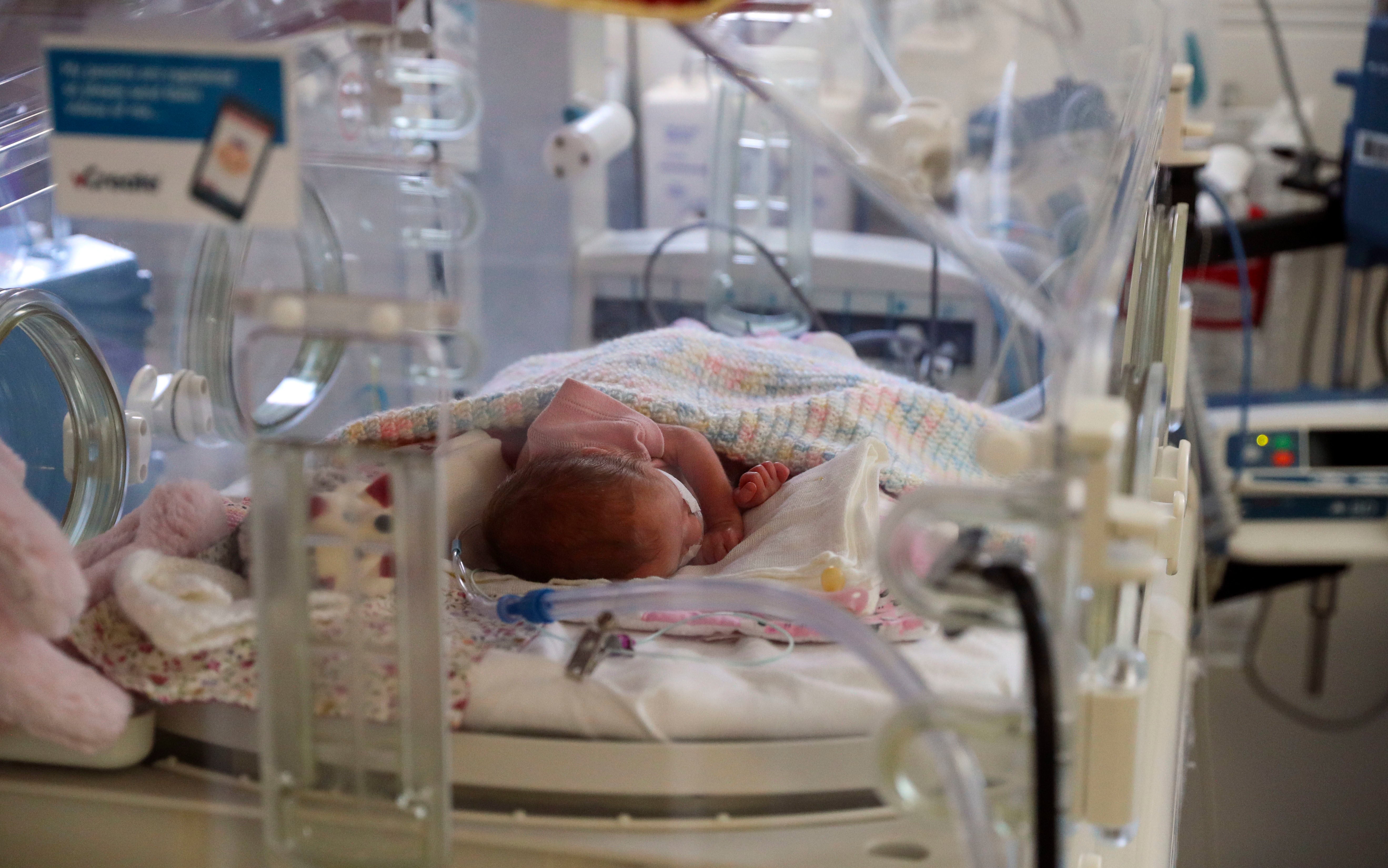New training for NHS maternity staff to boost babies’ safety
A new independent patient safety commissioner role will be set up by ministers

Hundreds of senior midwives are to be given new training to help improve culture and leadership across 126 NHS trusts.
Patient safety minister Nadine Dorries said a new £500,000 maternity leadership programme would be rolled out later this year aimed at giving senior staff running maternity wards the skills and knowledge they need to boost culture and safety.
Its one step towards improving the working relationships between midwives and obstetricians and follows the damning report by the Ockenden inquiry into decades of poor care at Shrewsbury and Telford Hospitals Trust.
The report, published last month, highlighted leadership on maternity wards as a key factor in cases at the trust which led to preventable baby deaths and cases of neglect over many years.
The Independent revealed the full scale of the poor care at the Shrewsbury and Telford Trust in November 2019 and joined with charity Baby Lifeline to call for new maternity safety training in hospitals to help reduce deaths. Almost two thirds of maternity units in England need to improve on safety, according to the Care Quality Commission.
Announcing the fund, Nadine Dorries said: “The shocking and tragic findings of the Ockenden Review highlighted the importance of strengthening maternity leadership and oversight as well as fostering more collaborative approaches within maternity and neonatal services.
“I’m pleased to announce a new training programme for NHS maternity leaders, which will empower nurses, midwives and obstetricians to get the best out of their teams, and deliver safe, world-class care to mothers and their babies.”
A new network of advocates for women giving birth is also being established across the NHS as a result of the Ockenden report as well as maternity safety champions in every trust.
The new leadership course will provide training to 700 staff including heads of midwifery, clinical directors and regional chief midwives.
It will focus on how to anticipate risks, what is needed for safe services and how to create a learning system that includes providing psychological safety to staff while at the same time transparency and accountability for families.
Alongside the programme, a new core curriculum for professionals working in maternity and neonatal services is being developed to address variations in skills and safety training across England.
Sara Ledger, head of research and development at Baby Lifeline told The Independent: “Training maternity service leaders in how to engage with families appropriately and properly, and learning from tragic outcomes will enable the service to grow, adapt, and change. We’ve seen from our own work in this area that there is a long way to go in some cases.
“The work being carried out around a core curriculum is also badly needed. As we’ve seen from Baby Lifeline’s Mind the Gap research, frontline NHS professionals are not being trained in areas shown to relate to avoidable harm. We also know that the biggest barriers to providing and attending vital training, are lack of funding and staff shortages; therefore, we hope that funding will be released to support the roll-out of high-quality, effective training for every professional caring for women and babies."
The chief executive of the Royal College of Midwives Gill Walton said: “Strong maternity leadership is crucial if we are to meet the challenges currenting facing our maternity services. Working relationships within maternity services are key to improving safety. By equipping more midwives and obstetricians with the skills to improve workplace culture, we will improve safety too.
“Recent reports on failed and failing maternity services have shown consistently similar cultural problems in the workplace and we have got to work together to address this.”
Separately, the government has confirmed plans to create a new independent patient safety commissioner which will be appointed by the health secretary but able to advocate for patients and challenge the healthcare system.
It was a key recommendation of the review led by Baroness Julia Cumberlege into the harm caused to thousands of women and babies from the use of vaginal mesh, and medications sodium valproate and Primodos which left babies deformed.
But in announcing her response to the Cumberlege report Nadine Dorries also revealed the government had rejected some key recommendations such as the creation of a new Redress Agency to provide families with compensation without the need for litigation.
The government has also said it is still considering a number of other recommendations will also respond to the inquiry into the rogue breast surgeon Ian Patterson in the coming weeks.
Join our commenting forum
Join thought-provoking conversations, follow other Independent readers and see their replies
Comments


Bookmark popover
Removed from bookmarks